Nigerians were left speechless on May 29 when after taking the oaths of office and allegiance, President Muhammadu Buhari and Vice President Yemi Osinbajo left the Eagle Square, the venue of the Presidential Inauguration ceremony without uttering a word. The President had nothing to say to Nigerians. He simply went back into his car and returned to the Presidential Villa. I thought that was an anti-climax. It was such a beautiful ceremony, what with the prayers, parades, gun salute and the symbolic retirement of the Defence flag and the national flag and the hoisting of new ones to signal the end of a term and the beginning of another.
The Constitution does not outline how an inauguration ceremony should be conducted, except that in Nigeria’s case, a President, who has been elected for a first term, or re-elected for a second term in office, must take an oath of office. It would amount to an illegal extension of tenure to shift the day and date. Over the years, certain traditions have also developed around Presidential inaugurations; these may vary from one country to another. In the United States, an inaugural speech is standard practice. Every US President, with the exception of about eight Presidents whose predecessors suddenly died before completing their term, have delivered an inaugural speech since George Washington (1789). Be it in Brazil, Indonesia, South Africa or India, Presidents or Prime Ministers use the opportunity of Inauguration Day to set the tone for their administration, by articulating their vision and mission. A well-written inaugural speech should capture the mood of the nation, reassure the people, connect with them, stir hope and build confidence. The beginning of a new administration provides an opportunity for the leader to give the people something to look forward to. It can also be used as a platform to send a strong message to the international community and assert leadership. Great speeches have been made on Inauguration Day particularly in the United States. Abraham Lincoln’s inaugural speech (1861), Franklin Delano Roosevelt’s inaugural speech (1933) and that of John F. Kennedy (1961) are among some of the most quoted and referenced inaugural speeches ever. Some American Presidents to deepen the event have even added a touch of poetry to the occasion as President Barack Obama did with Maya Angelou in1993.
On May 29, 2019, President wasted a good opportunity to reach out to Nigerians. He made it look as if the whole event was a distraction if not a piece of inconvenience. And yet, the occasion called for a speech given the state of the nation. On Friday, May 29, 2015, the then newly elected 15th President of Nigeria, and the 4thsince 1999 seized the day when he made that famous statement: “I belong to everybody and I belong to nobody.” He tried to reassure all Nigerians who had been entertaining fears that he would be vindictive as civilian President. He told Nigerians: “..There will be no paying off old scores. The past is prologue.” He reminded Nigerians of the glory of the past and the nobility of our ancestors. Then he defined the priorities of his administration and his vision for the future. For weeks, Nigerians analysed and debated the President Buhari’s 2015 inaugural speech. There was hope in the air. President Buhari promised Nigerians he would deal with the security challenge in the country, strengthen the economy and also wage war against corruption. Those who voted him into power were excited. Every country needs such a moment of re-awakening. So why would the same man treat Nigerians with such contempt on May 29? A Presidential speech is not just words. Thousands have gone to war to defend their nation by just listening to the words of the leader. Winston Churchill was most effective in using his gift of the gab to mobilise an entire nation in pursuit of defined goals.
In the 2019 Presidential election, over 15 million Nigerians voted for President Buhari. Even if he did not have a written speech, he could have spoken ex tempore, on May 29, if only to thank his supporters and all the party members across the nation who worked hard to ensure his re-election. A day after the inauguration, the President left for Saudi Arabia to attend a meeting of the Organization of Islamic Co-operation. He could while speaking ex tempore refer to that meeting and assure Nigerians work had indeed begun. There is no rule prescribing the format or nature of a Presidential inaugural speech. During his second inauguration in 1793, President George Washington’s speech was just 135 words long!
Nonetheless, President Buhari had every reason to talk to Nigerians. There is widespread insecurity in the land, far worse than the situation Nigerians faced in 2015. If President Buhari inherited certain challenges in 2015, those challenges have become worse, four years later. Insecurity is no longer about Boko Haram but banditry, farmers-herdsmen clashes, kidnapping, and the reign of impunity in parts of the country. The Buhari government may have taken Nigeria out of economic recession, but we have also been told by those who should know that we should expect slow growth and the months ahead may bring greater hardship. The evidence is already available: the spate of suicide cases in the country continues to rise. The people are depressed, there is hunger, poverty and despair. On May 29, the President had an opportunity to talk to the people he leads and allay their fears. What the people need is someone to give them hope and who will back that promise with action. As Commander-in-Chief of the Armed Forces, the President could also have addressed the troops. Too many innocent lives have been lost in the battlefields of Nigeria: young men and women – military officers, the police, security and intelligence agents generally, whose duty it is to keep Nigeria safe and secure in the face of the assault on the integrity of the Nigerian state by bandits and terrorists. They deserved the President’s recognition and appreciation on the occasion of his swearing in for a second term in office.
Some of the President’s handlers and supporters have tried to dismiss objections to his failure or is it refusal (?) to make a speech on Inauguration day as much ado about northing. They argue that the government had announced previously that May 29 would be a low-key ceremony and that the main celebration would be on June 12 which has now been declared a Federal Holiday for the celebration of Democracy Day. We have now been told to expect a speech on Democracy Day. This sounds like some Presidential staff making an excuse for their own laziness. Inauguration Day and Democracy Day are two separate and distinct events requiring two different kinds of speeches. It is not as if the President even gave a national broadcast on May 29. If he did, then those who dropped the ball on May 29, could easily offer that as excuse. The President of a country cannot be accused of talking too much. President Ronald Reagan addressed the American people virtually every week, on television, on radio or through direct communication and appeal. Jeffrey K. Tulis in his book, The Rhetorical Presidency (1987) says the essence of the modern presidency lies in “rhetorical leadership”, that is power of words, engagement and connection with the people who the President has been elected to lead and serve. Charles O. Jones in an essay titled “The Inaugural Address: Ceremony of Transitions” (2010) argues that “the inaugural address is the most exclusive of presidential speeches.”
Those who have been defending President Buhari have also argued that the President has invited 90 or more world leaders to come and celebrate Democracy Day with Nigerians on June 12. Those world leaders who will attend the June 12 event obviously understand that they are not coming for President Buhari’s inauguration, but an entirely different event. It is up to them to decide whether to attend or not. In 2015, Nigeria invited 54 African countries to President Buhari’s inauguration. About 32 African Heads of State or their Deputies, and at least one King (the King of Swaziland) attended the event. The First Lady of Namibia, and the second Lady of Tanzania attended too; there were over 22 Foreign Ministers, the US Secretary of State, Heads of Parliaments and Heads of International Organizations including the then AU commission Chairperson, Nkosazana Dlamini-Zuma. On that occasion too, President Buhari enjoyed the solidarity of all living former Nigerian Heads of State. This year, only General Yakubu Gowon was in attendance. Nobody has told us whether other former Heads of State were invited or not, and even if they showed up on June 12 at Democracy Day celebration, it wouldn’t make up for their conspicuous absence on May 29.
In the absence of anything concrete to hold on to, Nigerians have resorted to speculations and the ridiculous about what happened on May 29 at the Eagle Square in Abuja. There are those who insist that the President indeed said a lot with his silence and body language. I don’t quite understand what that means. Every President can make a difference with his or her own style, but body language is such a confusing style that may be appropriate in the 19thcentury but certainly not in this century. It was US President Woodrow Wilson who observed in 1907 that “the President is at liberty, both in law and conscience, to be as big a man as he can.” Richard Neustadt tells us: “But nowadays he cannot be as small as he might like” (1960). Neustadt is right. The people ordinarily expect the President to rise to every occasion. When he fails them, they opt for the mundane. Heavy weather has been made out of the absence of former Heads of State at this year’s inauguration day in Abuja. There has also been some tittle-tattle about the supposedly brand new Mercedes Benz that brought President Buhari to the Eagle square. That is idle talk of course – should the President have gone to his own inauguration in a rickety vehicle?
During the Presidential campaigns, the key message by President Buhari and his party, the All Progressives Congress (APC) is that if given a second term in office, he the President will run a government that will take Nigeria to “the next level.” He is yet to define the content of that “next level”. He could have done so on May 29. Weeks after the dissolution of the Federal Executive Council and one week after his swearing-in, President Buhari is yet to take any step to indicate that the promised journey to “the next level” has begun. The minimum that Nigerians expect by way of difference is that by now, President Buhari would have announced some key appointments, even if all he does is to reappoint the same persons. South African President Cyril Ramaphosa was sworn in on May 25, three days after he was elected to his first full term as President of South Africa, with his party gaining a majority in parliament with 57.5% of total votes cast. In his inaugural address, President Ramaphosa promised South Africans “a new era.” He told them: “There shall be no longer be any person in this land who will be unable to meet their basic needs.” He invoked the name of Nelson Mandela. He paid tribute to him. Ramaphosa’s predecessor, Mr. Jacob Zuma did not attend the inauguration. He said he did not have time. This has not stopped Ramaphosa from “hitting the ground running.”
He has taken some important steps including the announcement of a cabinet within four days after he was sworn in. He has used the composition of his cabinet to make some statements. He reduced the size of the cabinet from 36 to 28 Ministers. He has also appointed a member of the opposition, Patricia de Lille (GOOD party) to head the Ministry of Public Works and Infrastructure. He got rid of persons in the former cabinet who had been implicated one way or the other in acts of corruption, except perhaps Vice President David Mabuza who seems to have been retained in order not to further factionalize the ANC. There are more young persons and women. Women constitute 50% of the new South African cabinet. Ramaphosa says: “In appointing a new national executive, I have taken a number of considerations into account: including experience, continuity, competence, generational mix, and demographic and regional diversity.”
I believe there are lessons here, that can be learnt from South Africa and also from India where Prime Minister Narendra Modi also provides a good example of how a leader can send the right signals. Modi was sworn in on Thursday, May 30. He announced a new cabinet immediately. Like President Buhari, Prime Minister Modi has been elected for a second term. Unlike Ramaphosa’s cabinet, Modi’s cabinet is big – 58 Ministers – and out of these, only six are women, and only three have been appointed to full Ministerial positions. It is not necessarily an inclusive cabinet. There is even only one Muslim Minister and he is Minister of Minority Affairs! Every country has its own politics. The Indian election 2019 was a referendum on Modi’s leadership. He has proven to be the main issue in Indian politics. He ran a Presidential-style campaign. He won by a landslide because the people trust him.
He continues to build on that trust, like Ramaphosa in South Africa, by settling down to work quickly after election and swearing-in. In Nigeria, that has not happened. One week after inauguration, we are still in the dark, stuck in a limbo. Meanwhile, some aides of the President continue to work for him. By the sheer effluxion of time, the assignment of those aides automatically ended on May 28. If the President wants to reappoint them, it is within his prerogative to do so, but they cannot continue to work for him by conduct. This would amount to a violation of Sections 151 and 171 of the 1999 Constitution. President Buhari should quickly emulate the examples of President Ramaphosa (South Africa) and PM Modi (India) and get this “next level” thing off the ground. Getting the momentum right is an essential part of Presidential power












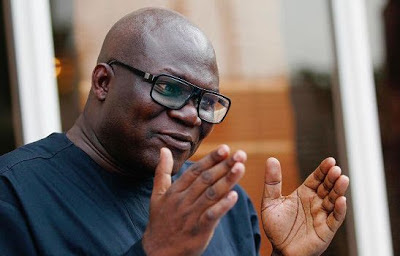

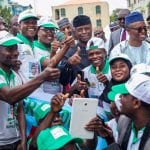





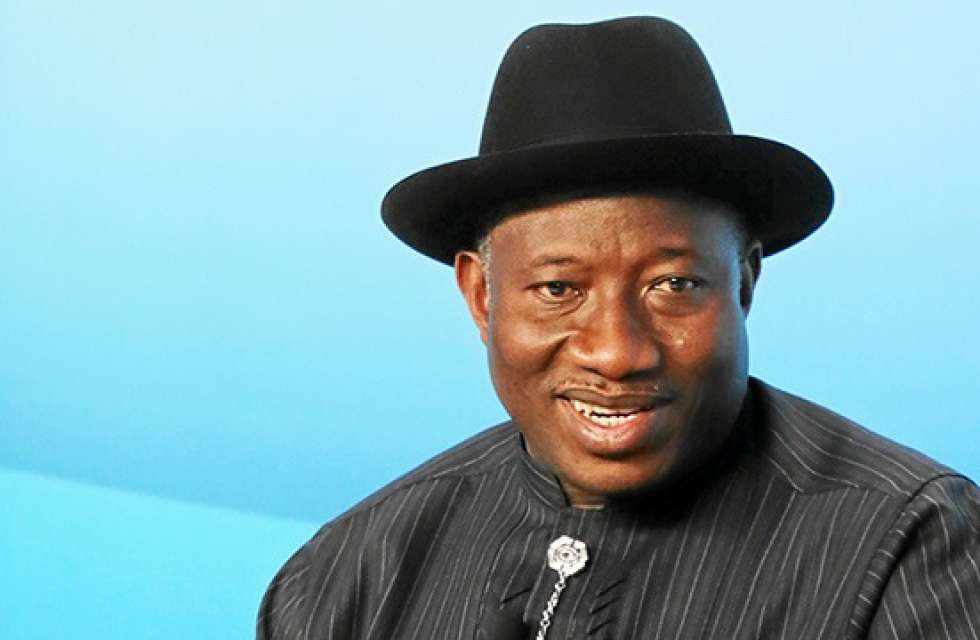
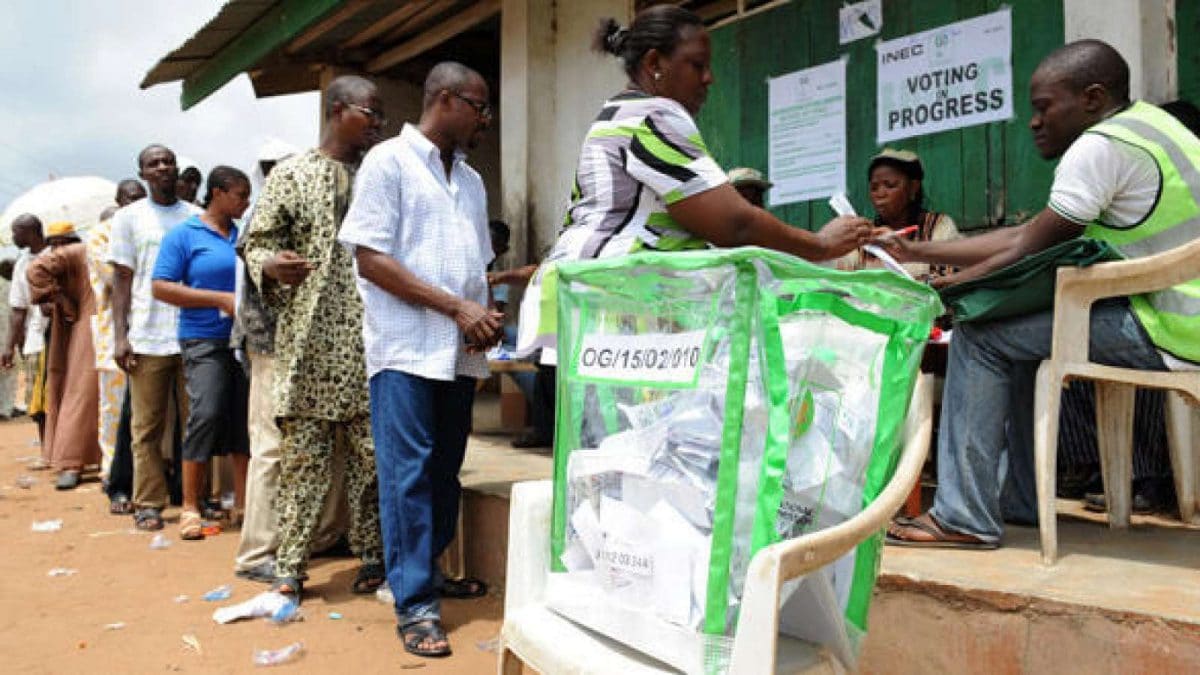
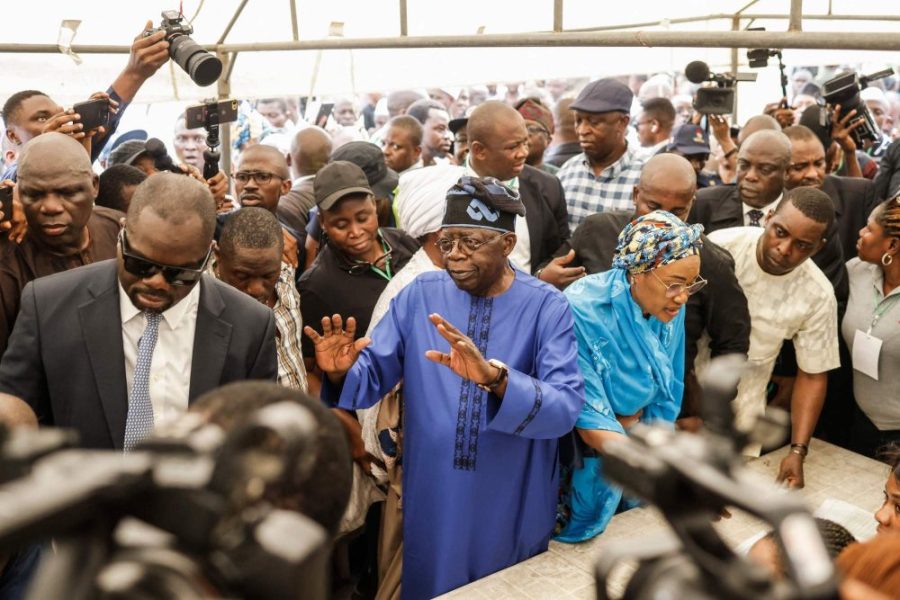
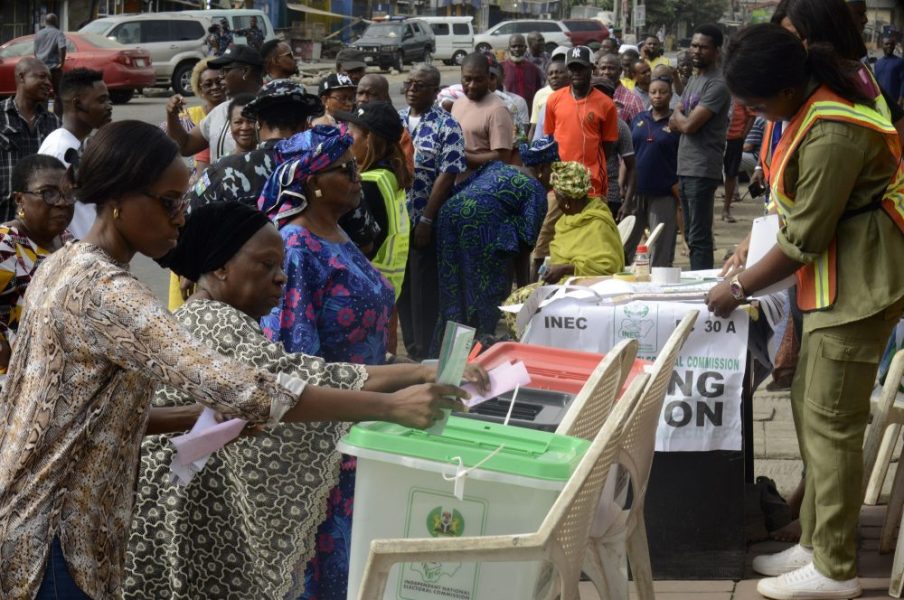
Leave a comment